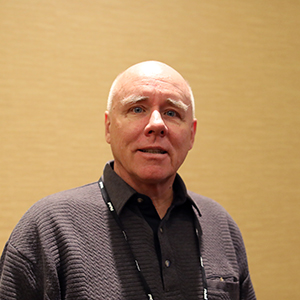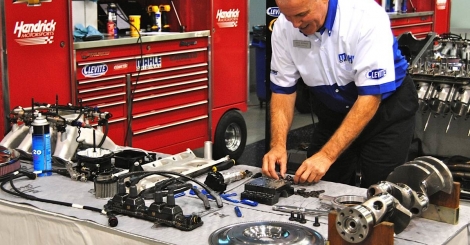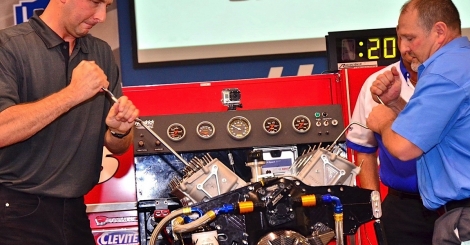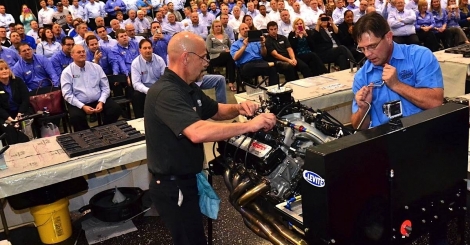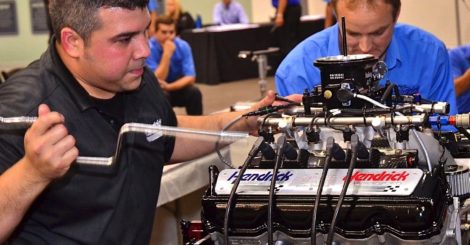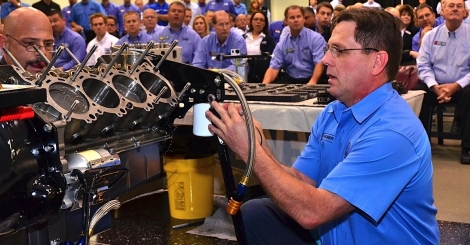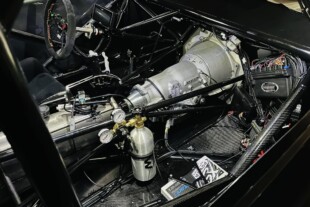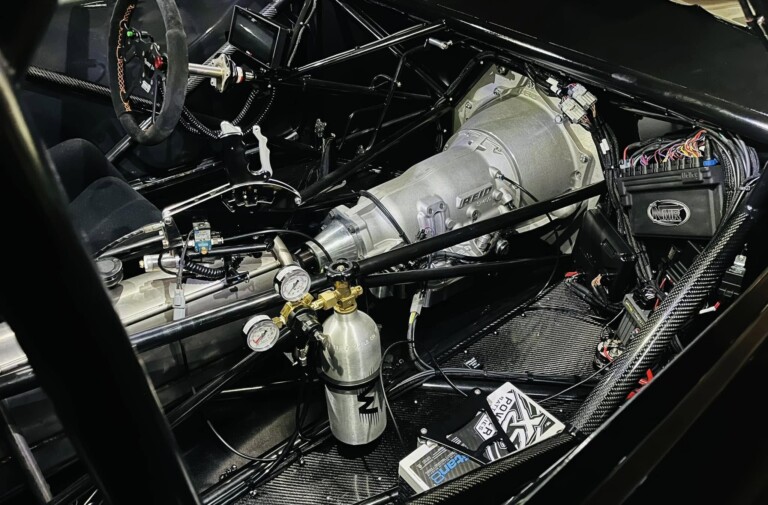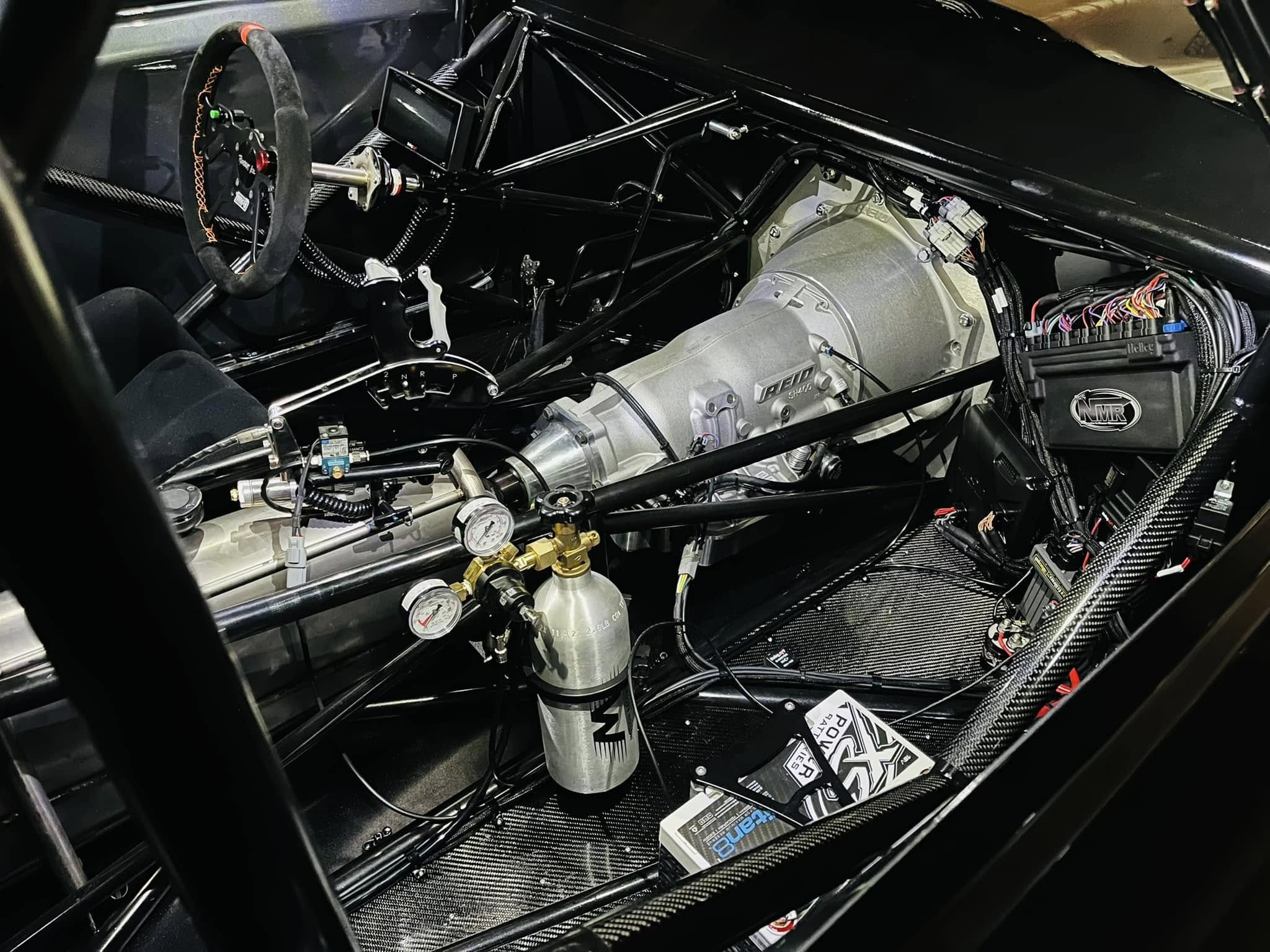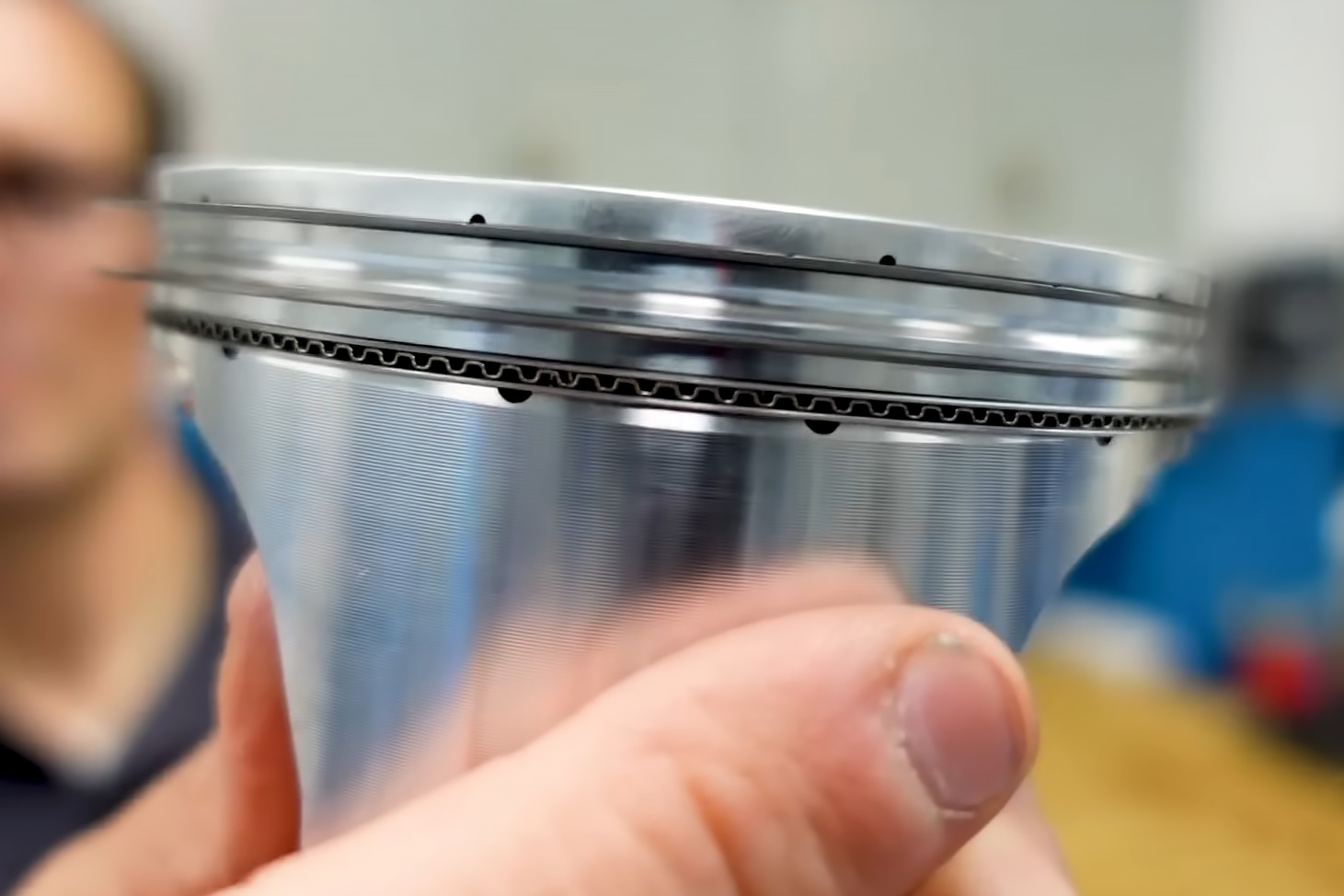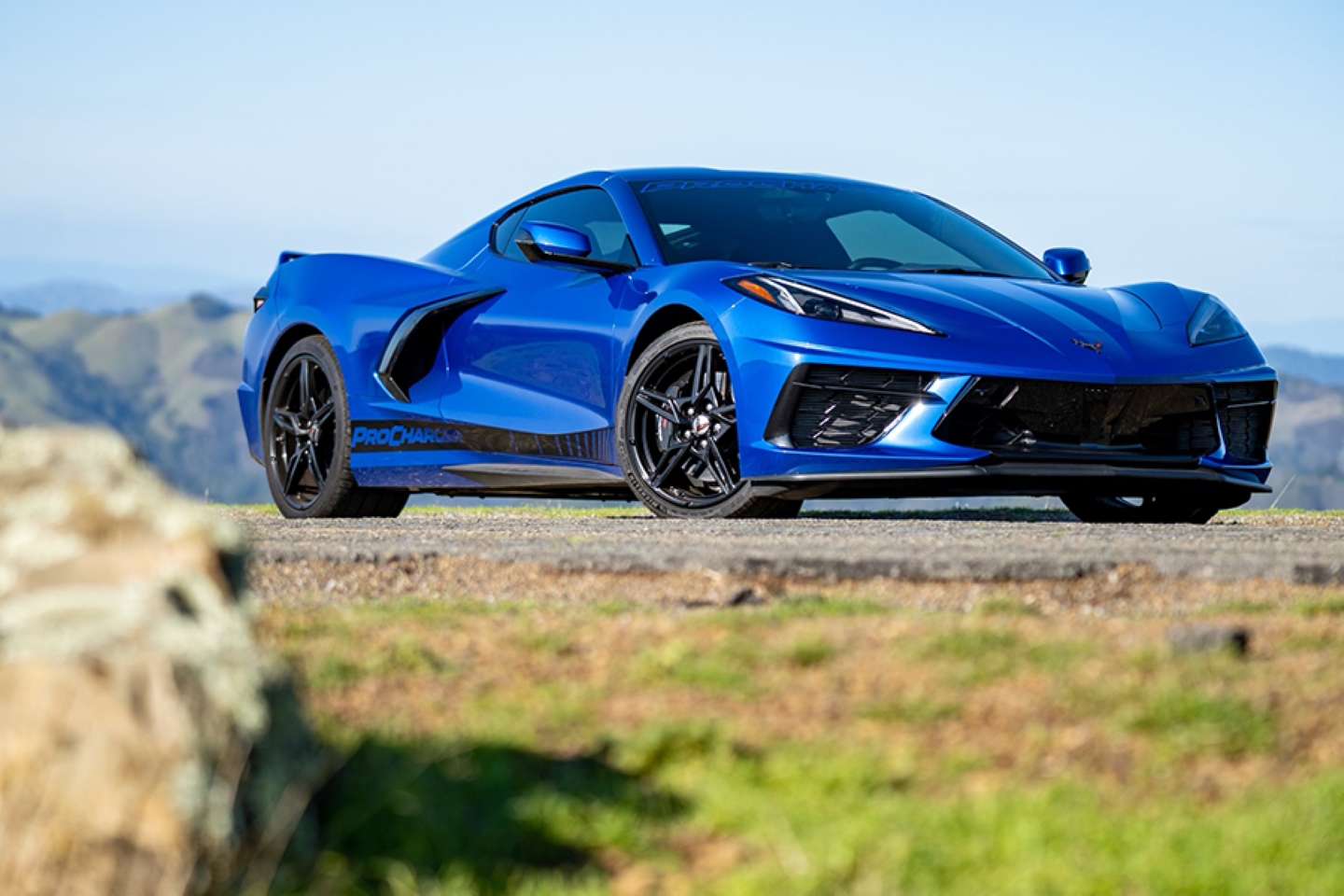Despite rules to restrict engine development, today’s NASCAR engines are more intricate and detail-oriented than ever. A testament to that trend was revealed during the 12th annual Randy Dorton Hendrick Engine Builder Showdown last week..
Jay Wiles, a dyno technician inside the Hendrick Motorsports engine department, teamed up with Robert Marock, who works out of the Hendrick Automotive Group’s Honda dealership in Concord, North Carolina, to win the competition by assembling a Chevy R07.2 engine in 24 minutes and 38 seconds.
Wiles is a repeat winner, having captured the inaugural competition in 2002. The showdown was renamed a few years later to honor Randy Dorton, the chief engine builder for Hendrick Motorsports who died in a 2004 plane crash.
“The first year I won we built our engine in just over 17 minutes,” says Wiles, who is 49 and has worked at Hendrick since 1998. “So that tells how much more complex these engines and the process is now.”
“I get more nervous every time I participate,” adds the 50-year-old Marock. “Jay was a great partner and communication was key to winning today.”
Action from the Randy Dorton Hendrick Engine Builder Showdown.
Wiles and Marock survived a one-minute penalty for a loose bolt on the intake manifold to win the final round by just 14 seconds over Van Nguyen, a valvetrain technician at Hendrick Motorsports and Brad Lyne of Hendrick’s Chevy dealership in Merriam, Kansas.
The competition pairs 12 master technicians from the Hendrick Automotive Group with 12 members of the engine team at Hendrick Motorsports. After qualifying rounds over two days, the two teams with the best preliminary engine-build times go head-to-head in the championship round. The overall goal is to have the fewest errors in the quickest time.
More views of the Randy Dorton Hendrick Engine Builder Showdown.
All teams are required to assemble 358ci Chevy R07.2 engines designed with 12:1 compression ratio and electronic fuel injection. Components include Bosch spark plugs and ignitions, Purolator filters and GM Racing block, heads and intake manifold. Officials note that the competition engines resemble but are not identical to the fully prepped race engines that are advertised at 830 horsepower at 9,000 rpm with 520 lb-ft peak torque at 7,400 rpm. Most insiders, however, say today’s NASCAR engines make closer to 900 horsepower.
Last year’s winning time was 27 minutes, 46 seconds. 2012 was also the first time that engine builders worked with EFI, which slowed down the winning time about six minutes from the previous year when a single 4-barrel carburetor was used.

Shown from left: Hendrick Automotive group president and CEO Ed Brown, VP fixed operations Wayne Simpson, Honda of Concord GM Wes Watkins, winners Robert Marock and Jay Wiles, chairman of Hendrick Automotive Group and owner of Hendrick Motorsports Rick Hendrick, and director of engine operations at Hendrick Motorsports Jeff Andrews.


